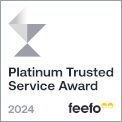Posted on 31/05/2023 by David
An information folder is a simple instruction manual to your holiday cottage. It should cover all the facilities in the cottage and some local area information to help guests make the most of their stay. Providing clear instructions makes it easy for guests and avoids unnecessary phone calls for advice or instructions.
We recommend that the information is always provided in the property in printed form but you can also create a digital version too, usually through an app or online. This way you can provide it to the guest before they arrive and keep it updated. There are a number of options available to you and North Wales Holiday Cottages can help you with this.
Remember, this is supposed to be helpful information and not a list of strict rules! Here are 10 suggestions for what to include:
1. Start with emergency contact details: Ambulance, Fire and Police (999). There are a number of lower priority numbers for medical (111) and police (101) too. Don’t forget that some of your guests may be from overseas and not familiar with the numbers we use in the UK.
2. Your contact details (or that of the property keyholder/guardian) and the letting agency contact details.
3. Other urgent needs:
Dentist
Hospital
Vet
Pharmacy
Location of water stop cock, gas supply valve and consumer unit (circuit breaker panel box)
4. An introduction to your holiday cottage, make sure to mention any interesting history and details of the local area. You could include any aspects about the house that are characteristic of the region.
5. Provide a map of the area around the house and identify local amenities:
Shops
Cafes
Pubs
Restaurants
Cinema
Theatre
Nearest cashpoint
Bus stops
Train station
Taxi companies
Ev Charge Point locations
This is where you can provide some local knowledge with recommendations of a particular restaurant or café for example.
6. Things to do:
Walks around the property
Attractions and events
Make them appropriate to the cottage and the type of people who might stay there, for example if you accept dogs then include places where dogs are welcome.
7. Rules for dogs:
For example, they are not permitted on furniture or upstairs. Do not leave dogs in the property by themselves – even if they are used to being left alone at home they can become distressed in new surroundings and can cause damage or execissive barking which disturbs the neighbours.
8. Fire safety information including details of smoke and carbon monoxide detectors, what to do in the event of an alarm, location of any firefighting equipment, the escape route(s) and assembly area. Include any rules like no candles, no smoking or any other restrictions your fire risk assessment has identified.
9. Explain the facilities
Guest may not be familiar with your particular washing machine or heating system and could need some guidance. The instructions for these items can be quite involved so try to create your own simplified guide, for example how to raise and lower the heating, how to use the TV or any equipment you may have like a car charge point. Supply a copy of the instructions separately in case further detail is needed - don’t provide the original documents as these may be lost or damaged. Heating systems, TV/satellite controls and ovens are the things that we get most enquiries about.
10. Procedure for rubbish collection: explain the recycling procedures and the day the bins have to go out. Most people don’t mind recycling (some are very pleased to have the opportunity to do it) but different areas of the country have different rules so explain clearly what they have to do.
It can take quite a lot of work to put this information together but it’s well worth the effort to make it easier for guests and for yourself as you will get less calls and messages asking you questions.

